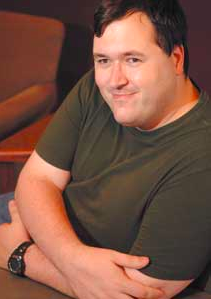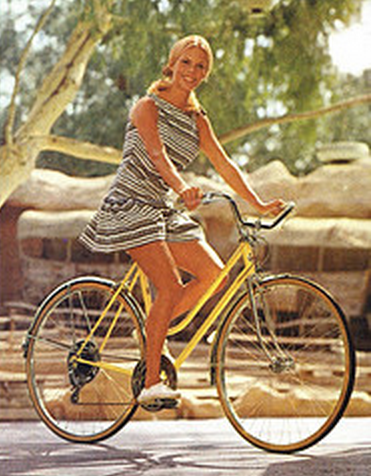In this site’s capacity as a feeder or proving ground of sorts for Investopedia, our work occasionally ends up on Yahoo. (Note: We’re done with accommodating entities that want to punctuate themselves in a wacky fashion. Yahoo, your exclamation point is confusing, gratuitous and unwelcome here.)
A fellow Yahoo contributor is Gary Foreman at CreditCards.com, who answered a “reader’s” question about saving and debt. That’s in quotation marks because it leaves open the possibility that there exist people who believe that a question publicly answered by someone promising advice could ever be anything but pure fiction.
Anyhow, reader “Waqas” posed the question. Here’s Gary’s response, and ours, even though no one asked for the latter. No one asked for the former either, but whatever:
Dear New Frugal You:
Right now I owe $3,100 on my credit card. I have $6,000 in my savings but am trying to hit a benchmark of $10,000 in my savings. The way I’ve been saving I should hit the $10,000 mark in three months. However, the balance on my credit is glaring. My total credit limit is $4,500. Should I pay this debt immediately, slowly, or should I continue to pay a small amount just over minimum to hit my benchmark of $10,000, then anything I make after will be strictly towards my debt? Please and thank you. — Waqas
Got all that? Good.
Dear Waqas:
Your priorities could not be more out of order. You’re “trying to hit a benchmark of $10,000 in [your] savings”? First, the expression “hit a benchmark” is unnecessary. You’re trying to save $10,000. So say that instead.
Second, stop being ingenuous. Not sure if you noticed this, but credit cards charge interest.
This is 77 Harrison Avenue, Sausalito, California. It’s the home of Robert W. Matschullat, chairman of VISA.
Three stories, 10,581 square feet. 5 bedrooms, 7 bathrooms. He paid $6,834,000 for it, and when you’re that rich you can ignore our advice to buy the smallest house in the best neighborhood. Also, Chez Matschullat is this close to San Francisco Bay:
Waqas, if credit cards didn’t charge interest, Mr. Matschullat would be living in the same basement suite you do. You’d be roommates. CBS might borrow details of your story for a family-friendly sitcom about your crazy adventures. Can a young humanities graduate with a crushing debt load and a failed financial services executive share a cheap apartment without driving each other crazy? Find out on this week’s episode of Waqas & Bobby, Thursday at 8 (7 Central)!
In other words, your $3,100 balance is going to be a $3,101.61 balance tomorrow and a $3,103.24 balance the day after that. Unless you’re in an introductory no-interest period, but we figure you would have mentioned that. Oh, what the hell: you’re a figment of Gary Foreman’s imagination anyway, and for all we know he’s a character created by the Taiwanese entrepreneur behind CreditCards.com, but we’ll assume that you’re all flesh-and-blood for the purposes of this post.
Let’s parse the 1st line of Waqas’s lament:
Right now I owe $3,100 on my credit card.
followed by
I have $6,000 in my savings
Boom! Done! What else is there? A couple of keystrokes, and you now owe 0 on your credit card and have $2,900 in savings. Come on, give us a hard one.
Why does your question continue? That should be the end of it, and yet it isn’t.
Trying to save $10,000? Congratulations, you’re 29% of the way there. But no, the financial idiot’s capacity for complicating things is limitless. We already quoted this, but it bears repeating:
Should I pay this debt immediately, slowly, or should I continue to pay a small amount just over minimum to hit my benchmark of $10,000, then anything I make after will be strictly towards my debt?
The only acceptable answer is “Unless your bank/credit union/neighborhood Shylock is offering you a higher interest rate than the credit card is charging, pay it immediately. And how did you manage to form sentences despite being so amazingly dumb?”
Maybe it isn’t stupidity, but rather naïvete. Are there people who really think that there exist savings accounts that pay more than even the lowest-interest credit card charges? No, there can’t be.
Which brings us to a CYC standby, Always look at the transaction from the other party’s perspective. The 19% or whatever that VISA or MasterCard charges you in interest is a 19% return for them. You like high returns, right? Would you be interested in an investment that pays 19% annually? Because Robert Matschullat sure as hell is. And his landscaping crew, tennis pro, pool boy, and string of jewelry-hungry mistresses (if any) certainly appreciate it.
So yeah, if you want as concise an answer as possible, send a $3100 check to your credit card issuer yesterday. Why you didn’t do this while you were amassing the $6000 is beyond us.
Here’s Gary Foreman’s more nuanced if less helpful response. We’ll admit, it’s definitely different. We were going to present it as a block and then give comments at the end, but it’s more fun (and probably easier on you, the readers) if we assail it point-by-point:
Congratulations on your savings success.
(Yes, let’s start by patting the idiots on the back. When did we start treating the population at large like Special Olympians?) I’m sure that it feels good to be so near to your goal. Your question is a good one (No, it’s an awful one. See above) and one that many people ask: Does it make sense to put money in a savings account while you still are repaying debt? (Many people ask if smoking clove cigarettes is somehow better than smoking conventional cigarettes, or if smoking either will help maintain weight loss. That doesn’t make them legitimate questions.)
Let’s look at the question a couple of different ways. (Why? We already answered it! Unambiguously! This is like trying to find a second answer to “What’s the capital of Chile?” There isn’t one.) First, we’ll discuss why we want/need a savings account and why we borrow money. Second, we’ll look at the purely mathematical aspects of your question. (Nice going, Gary. You put the 1st part 2nd, and the useless part 1st.) Then, finally, we’ll consider some of the emotional/psychological issues your question brings up.
(Alright, new paragraph required. Boldface, too. There is no place for emotional/psychological issues in personal finance. None. Leave that nonsense in the pages of Cosmo. We’re not being funny or intentionally shocking here, either. You should know this by now. Because finance don’t care. Emotion and psychology have their place, but it’s not here. If you want to talk about, share, or otherwise validate your feelings, there are other more fitting avenues for doing so. Your personal relationships, for instance. But not your relationship with money. Good God, why hasn’t the world as a whole figured this out yet?)
I’m guessing, but I suspect that you started saving because you became tired of having unexpected expenses that could be paid only by using your credit card. And, to tell the truth, those bills aren’t really unexpected. (Gary, do you give your straw men names? If not, how do you tell them apart?) We know that a car or the fridge will break down or we’ll need to visit the doctor. What we don’t know is when it will happen. (Great insight. Why hasn’t The Simple Dollar hired you as a staff writer yet?)
As to why we use credit cards the story is usually the same. In the beginning, it’s just convenience. They’re easier to use than cash. (The guy didn’t ask this. He wanted your advice. How about giving it, instead of answering questions he never posed?) Plus they’re handy for the unexpected bill that we can’t handle out of savings. (Actually, credit cards are for a] freeing us from the obligation of carrying cash, 2] allowing us to track our expenses more easily, and iii] letting us amass rewards that we wouldn’t be eligible for if we paid cash for everything. Look it up.) Typically we want to spread the bill over the next few months and pay down the credit card account. (Why? What fool willingly wants to do this? “Yes, I’d much rather incur interest over the next few months than pay this instantly. Because I hate money.”)
Sometimes we find that difficult to do. And today’s unexpected expense gets added to the one from six months ago that we still are working on repaying. So our balance doesn’t disappear, but rather seems to be growing. That sounds like what you’re experiencing, Waqas.
Next, let’s examine the math of the question. (Why didn’t we do this 200 words ago? Oh right, you’re making it up as you go along and needed to fill some space. You should submit to the Carnival of Wealth sometime.) If you’re asking what’s the quickest way to both save $10,000 and repay your debt, your answer will lie in the interest rates. (No! False premise. Those are conflicting goals and need to be prioritized. And anyone who thinks that saving $10,000 should come first shouldn’t be permitted access to the internet.) Compare the interest rate being earned on your savings to the interest rate being charged on the credit card. (We really try not to use profanity on here, but no sh*t.) You should put any extra money you have on whichever is higher. (That’s great. “Whichever is higher”, as if there could be a question. Pitch to Mike Trout or Erick Aybar, whoever’s the weaker hitter.)
It’s almost certain the credit card bill should be paid off first. (Other things that are almost certain? Ice is colder than water. Bees make honey. Puppies are cute. We’re closing in on maximum enlightenment here.) Your interest rate on the unpaid balance is probably in the teens. Your saving account is probably in the low single-digit range. Once you’ve paid off the credit card you can resume adding to the savings account.
If your only concern is how quickly you can accomplish both you’d actually be wise to pull $3,100 from savings to totally pay off the credit card balance. But some would argue against that. (Ooh! Ooh! Call on us, teacher, because we can’t raise our hands any higher. We’re practically touching the ceiling here.) Which leads us to the final way to look at your question.
Are there any emotional issues that would suggest that you should save the money before repaying the debt? (Wait, is it “Gary” or “Gabriella”?)
There are some people who, for various reasons, must have some savings available to them. (Yeah, they’re called “humans.” Needing savings and artificially creating a higher level of same are 2 different things. Think about it. Waqas is BORROWING MONEY to keep his “savings” high. Why not encourage him to take out an additional $20,000 loan? Then he’ll have $26,000 in savings! What a cushion!) Without it they feel vulnerable. For them it would be best to build the savings up to an acceptable level and then use extra money to repay debts. It won’t be the quickest way, but it will help prevent sleepless nights! (Okay, now we’re at the point where we’re adding blatant lies to the mix. How does increasing the number of nights in debt reduce the sleeplessness? How about we put that question in your next mailbag?)
What should you do? Only you can decide how comfortable you’d be if your savings was suddenly cut in half. (Ah, the good old vacillating non-answer. “Whatever you think is right.” If you were going to say that, why even pretend to bother answering the question?) But you might feel relieved knowing that the credit card debt was wiped out. In either case, at the rate you’re going, you should reach both goals in about six months. So you won’t have too long to wait. Congrats!
And one more back-patting gesture for good measure. Enough.
If you have questions of your own, send them to info at ControlYourCash.com. And don’t ask “Why are you so mean?”, we’ve already answered that one several times.






